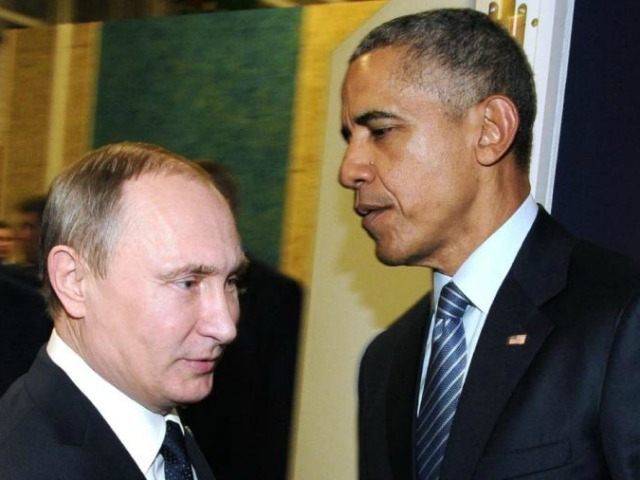An updated assessment of Russian national security, signed by President Vladimir Putin on New Year’s Eve, names the United States as a threat, along with NATO. The report does not, however, list Syria as a threat, even though Russia is currently bombing rebel forces in that country.
Reuters reviews how the new appraisal, the first major revision in five years, describes the threat posed by the United States:
It says Russia has managed to heighten its role in solving global problems and international conflicts. That heightened role has caused a reaction by the West, it says.
“The strengthening of Russia happens against the background of new threats to the national security, which has complex and interrelated nature,” the document says.
Conducting an independent policy, “both international and domestic” has caused “counteraction from the USA and its allies, which are striving to retain their dominance in global affairs.”
That in turn is likely to lead to “political, economical, military and informational pressure” on Russia, the document says.”
Reuters writes that the new Russian threat assessment is “a sign of how relations with the West have deteriorated in recent years.”
The report also cites NATO expansion as a threat to Russia’s security. As described by the Financial Times, complaints against NATO include “the intensification of military activities of member countries,” “further expansion of the alliance,” and “moving military infrastructure closer to Russia’s borders.”
Neither America nor NATO was listed as a security threat in the 2009 security assessment signed by Putin’s predecessor, Dmitry Medvedev. The Financial Times notes that a Russian military strategy guide published only a year ago also stopped short of describing America or NATO as “threats” or “enemies.”
Unsurprisingly, much of the tension in the new security assessment comes from the clash between Russia and Western powers over Ukraine and Crimea. As Russia sees it, the West supported an “anti-constitutional coup” in Ukraine (a reference to the ouster of pro-Russia President Viktor Yanukovych), which led to a “deep split in Ukrainian society and the emergence of an armed conflict,” transforming Ukraine into a “long-term source of instability in Europe and on Russia’s borders.”
The Russians do not think much of the so-called “Arab Spring,” either, complaining that “the practice of overthrowing legitimate political regimes is becoming more widespread, provoking domestic instability and conflicts.” They blame the rise of the Islamic State, in part, on Western support for rebel forces in Syria.
So much for Hillary Clinton’s famously bungled “reset button” stunt, President Obama whispering to Putin that he would have more “flexibility” to accommodate Russian missile demands after he got re-elected, and the spectacle of the Obama team mocking 2012 rival Mitt Romney for warning that Russia represented a major geopolitical threat to the United States.
One of President Obama’s taunts at Romney during the 2012 campaign said that the 1980s called and wanted their foreign policy back. It looks like the 80s called the Kremlin, too, and Vladimir Putin picked up the phone.

COMMENTS
Please let us know if you're having issues with commenting.